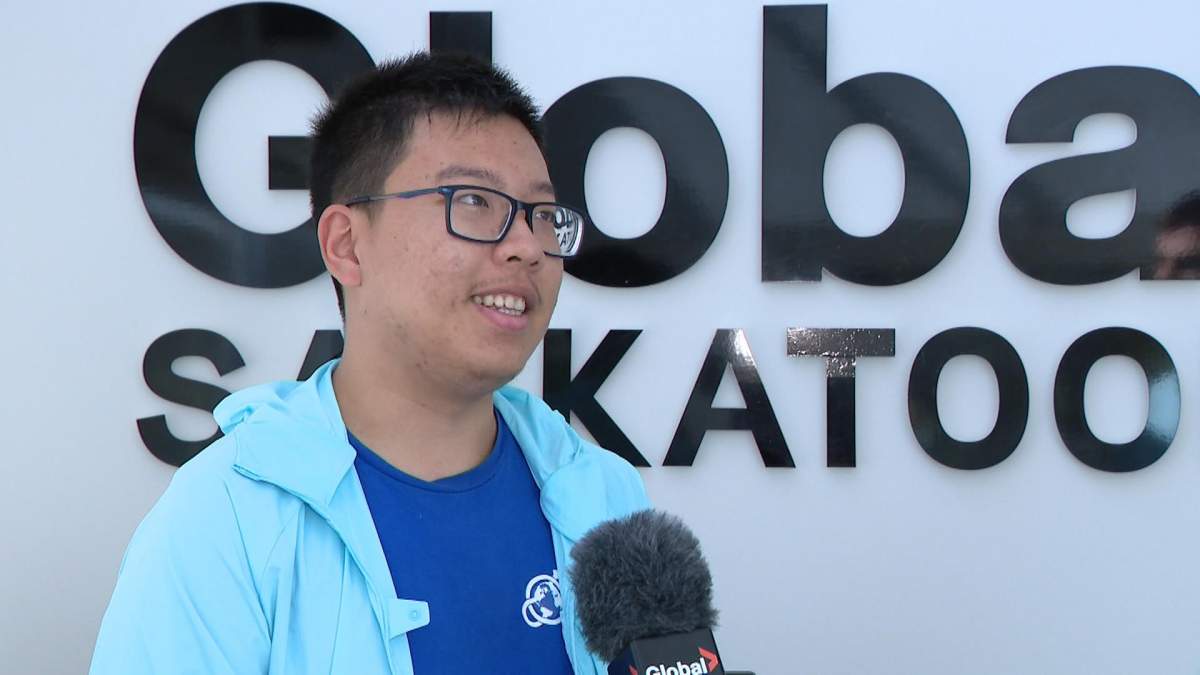A 17-year-old Saskatoon student from Walter Murray Collegiate has returned from Japan, where he captured a bronze medal at the International Mathematical Olympiad.

Over the course of two days in July, Haozhe Yang had to solve a series of six questions.
“The problems are meant to be … you shouldn’t be able to solve all of them,” Yang said. “This year I think there were only five perfect scores out of 600 competitors.”
Yang said the hardest problem was a geometry problem involving an equilateral triangle.
The students had nine hours total to complete the questions.

Get breaking National news
Yang, alongside students from Ottawa, Vancouver and the U.S., made up Team Canada to finish with an all-time best result of fifth place for the country.
The team won one gold medal, four silver and Yang’s bronze.
“It was a very rewarding experience,” Yang said. “You not only get to meet other new people, but also just learn a lot from them. The process is more than a competition, it’s a learning process.”
The competition has been running since 1959, with over 100 countries competing from over five continents.
“Math had many subfields and I really enjoy the intricate connections between the subfields,” Yang said.
Prior to the competition, Yang went to China for training.
“We actually got 13th prize in the training camp competition. We learned a lot during the training camp and it definitely improved our score a little bit,” Yang said.
The team travelled to Japan shortly after, where they were able to immerse themselves in the country outside of the competition.
“We learned many things like Japanese culture and the language.”
Yang is headed to Harvard on his next adventure to study mathematics — a course he hopes might lead to a PhD.








Comments